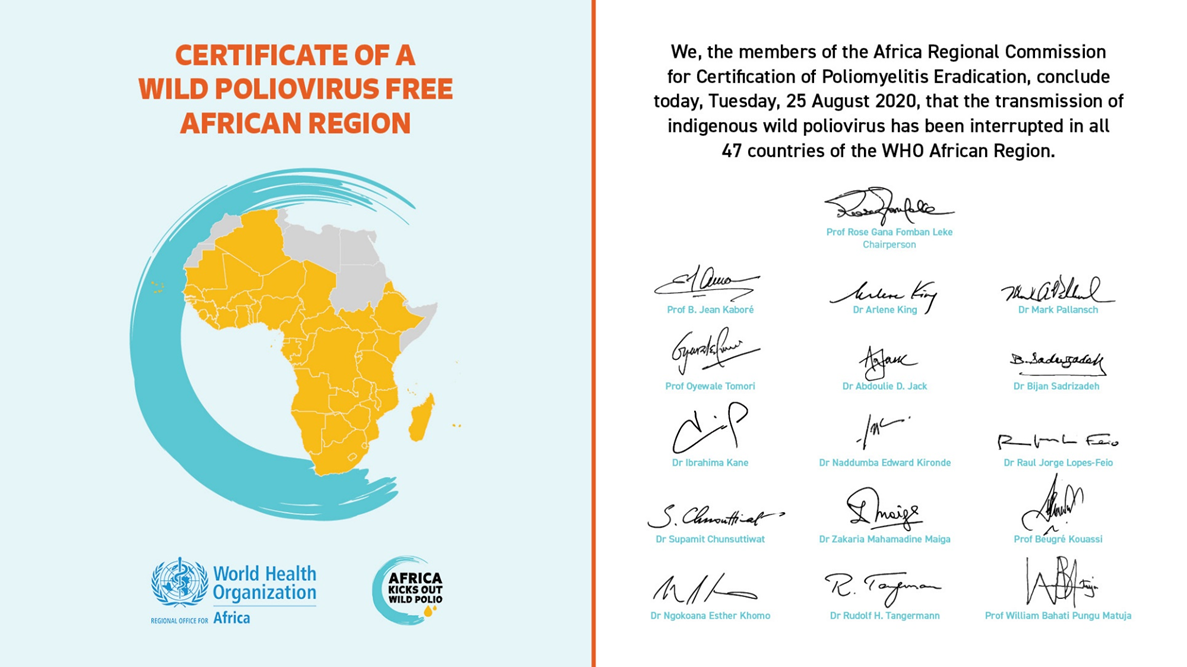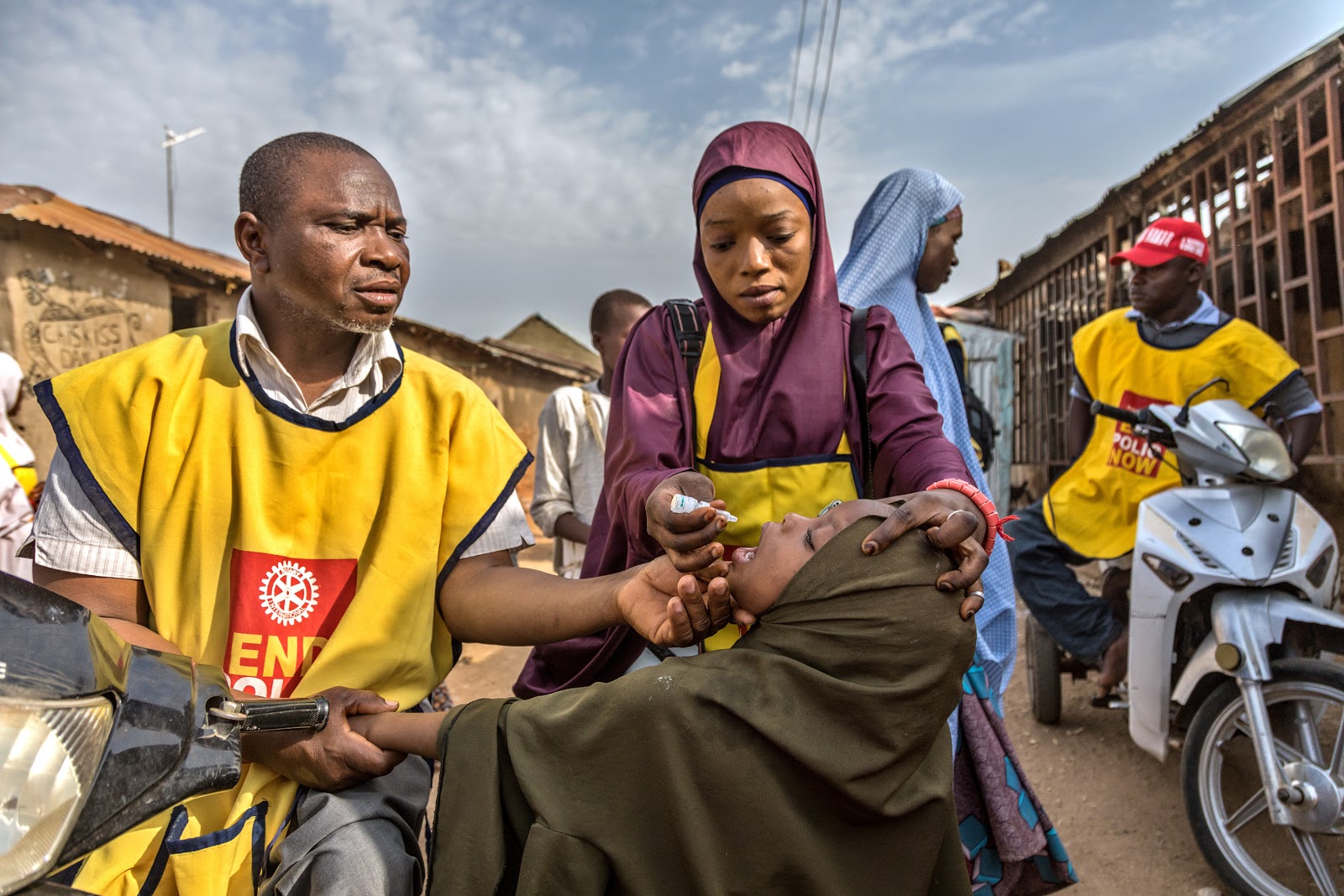- Polio cases have dropped by 99% over the past 30 years
- Africa was certified as ‘polio free’ in 2020
- Wild polio virus still reported in Pakistan and Afghanistan
- COVID-19 pandemic disrupted vaccination programmes
First, the good news: the African region was certified free of wild poliovirus in August 2020. The region has recorded no cases for four years. The last four countries to gain ‘polio free’ status were Nigeria, Cameroon, Central African Republic and South Sudan.

This marks another significant milestone for the Global Polio Eradication Initiative (GPEI) launched in 1988. Its goal is to make polio the second human disease ever to be eradicated, following the 1980 declaration that smallpox is gone for good.
Dozens of cases are still recorded annually in Pakistan and Afghanistan where 81 and 54 people have been affected in 2020 so far, according to Rotary’s End Polio Now campaign. The virus has proven stubbornly difficult to wipe out in parts of these two countries, despite the efforts of international agencies, NGOs and local health workers. The wild virus continues to be found in Karachi and Quetta in Pakistan, as well as in Southern Afghanistan. It has also been identified in regions that were previously polio-free.

Odesanya Ayikulola vaccinates a child against polio at Ikosi Health Center in Lagos, Nigeria. 28 July 2020. Find the story in “Rotary” magazine, October 2020. A health worker vaccinates a child at a health center in Lagos, Nigeria on July 28, 2020.
© Rotary International
Impact of COVID-19
The COVID-19 outbreak has caused disruption and complications for immunisation programmes in areas where vaccine delivery can be complex even in ordinary times.
Routine immunisation services across the world were reduced in the early months of the pandemic. Authorities in more than 20 countries, including Pakistan and Afghanistan, were forced to cancel or postpone Supplementary Immunisation Activities (SIAs) in which polio vaccination campaigns aim to vaccinate large numbers of children.
As the pandemic spread, staff and resources from some polio immunisation programmes were diverted to help fight COVID-19. In addition, lab capacity was largely taken over for COVID-19 testing.
Some staff and contractors were directly affected by the pandemic due to infection or the need to self-isolate. As a result, almost three million fewer children received polio vaccines in the first half of 2020 compared to the same period in 2019.
Lockdowns and travel restrictions also affected meetings of virologists and slowed the work of ‘virus hunters’ who work to track down polio viruses. Almost 500 fewer environmental specimens were tested in the first half of 2020 compared to the previous year.
Dozens of vaccine-derived polio viruses have been identified across the globe this year, notably in several African countries as well as Pakistan and Afghanistan. The good news is that a new vaccine has been authorised for emergency use. It is seen as a potential solution to vaccine-derived outbreaks.
Known as novel oral polio vaccine 2 (nOPV2), it has been genetically engineered to ensure it prevents the spread of wild poliovirus without setting off additional outbreaks.
Some polio vaccination services which had been stalled are now back up and running, but the pandemic has delivered an unwelcome blow to the eradication drive.
The disruption has posed logistical challenges that will take time to overcome. For example, millions of doses of vaccines – some of which have a short/medium shelf-life – are in storage. Vaccine makers may pause production until existing stocks have been used.
 Health workers and volunteers participate in a door-to-door polio immunization campaign in Kaduna, Nigeria. 13 April 2019. Rotary International is working closely with the government of Nigeria and its GPEI partners to intensify polio-eradication efforts there by addressing cultural barriers, fostering community education, and increasing surveillance in a mobile population. Health workers and volunteers participate in a polio immunization campaign in Kaduna, Nigeria in 2019. © Rotary International
Health workers and volunteers participate in a door-to-door polio immunization campaign in Kaduna, Nigeria. 13 April 2019. Rotary International is working closely with the government of Nigeria and its GPEI partners to intensify polio-eradication efforts there by addressing cultural barriers, fostering community education, and increasing surveillance in a mobile population. Health workers and volunteers participate in a polio immunization campaign in Kaduna, Nigeria in 2019. © Rotary International
New guidelines on delivering polio vaccination during the COVID-19 pandemic may help get the campaign back on track. However, some have warned that the costs of polio vaccine delivery will rise as a result.
2020 has proven to be a difficult year in the long-running campaign to end polio. On the long road to polio eradication, the last mile is proving the longest.
Read more: How will we know when polio is dead?




